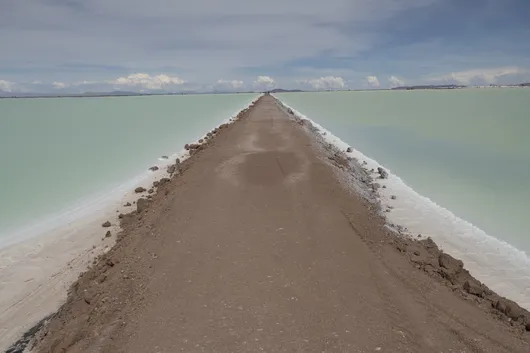Bolivia is intensifying its efforts to develop its vast lithium reserves, aiming to become a significant player in the global lithium market. However, these initiatives are encountering increasing resistance from local communities and environmental groups concerned about the social and ecological impacts of lithium extraction.
Strategic Partnerships to Boost Lithium Production
In November 2024, the Bolivian government signed an agreement with Chinese consortium CBC, which includes battery manufacturer CATL, to construct two direct lithium extraction plants with an investment of at least $1 billion. The government will hold a 51% stake in the project, located in the Uyuni salt flat, part of the lithium-rich region shared with Chile and Argentina. The two plants are expected to produce a combined 35,000 metric tons of lithium annually. Omar Alarcon, head of state-run lithium company YLB, stated that the contract involves developing “a plant that will produce 10,000 tons of lithium carbonate per year and another plant producing 25,000 tons of battery-grade lithium carbonate per year.”
Community Concerns and Environmental Implications
Despite the economic prospects, local communities and environmental advocates have raised concerns about the potential adverse effects of lithium mining. The extraction process requires substantial water usage, which can lead to shortages affecting agriculture and livestock, essential to the livelihoods of indigenous populations. Additionally, there are fears that the environmental degradation could disrupt the delicate ecosystems of the salt flats. In the past, foreign investment deals, such as the 2018 agreement with German company ACISA, were hindered by protests from local communities who felt excluded from the benefits of resource exploitation.
Balancing Economic Development and Environmental Stewardship
As Bolivia advances its lithium industrialization plans, the government faces the challenge of addressing the legitimate concerns of local communities and environmentalists. Ensuring that the benefits of lithium extraction are equitably distributed and that environmental safeguards are in place will be crucial for sustainable development. The situation underscores the need for transparent dialogue and inclusive decision-making processes to harmonize economic ambitions with social and environmental responsibilities.





